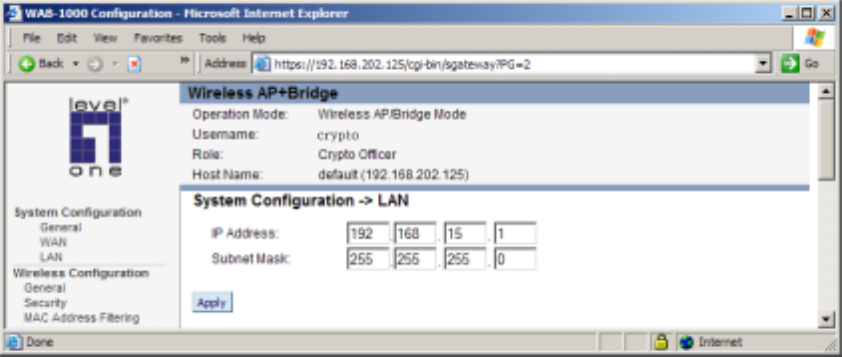
18
Wireless Setup
General
Wireless Setup allows your computer’s PC card to talk to the access point. Once you have
completed wireless configuration, you can complete the rest of the configuration wirelessly if
you wish, assuming that you have installed and configured a wireless PC card on your computer.
(If you have not done so, you will have to do that to establish communications. Follow the
manufacturer's instructions to set up the PC card on each wireless device that will be part of the
WLAN.)
The Wireless Configuration — General page lists the MAC Address of the WAB-1000
device. This is not the MAC Address that will be used for the BSSID for bridging setup,
however. That is found on the Bridging page.
If you will be using an SSID for a wireless LAN, enter it here and in the setup of each
wireless client. This nomenclature has to be set on the access point and each wireless device in
order for them to communicate.
The Wireless Mode menu allows you to specify whether you want your AP to operate solely
in the 802.11b band or in the 802.11g band or in a combination of the two. The 802.11b band
will accommodate legacy systems. The 802.11g improves the wireless power but limits use to
those WLANs that have only 802.11g clients. The 802.11 b/g mixed allows you to use both
802.11b and 802.11g clients but limits power to that of the 802.11b band.
The Wireless Mode menu allows you to specify whether you want your AP to operate solely
in the 802.11b band or in the 802.11g band or in a combination of the two. The 802.11b band


















